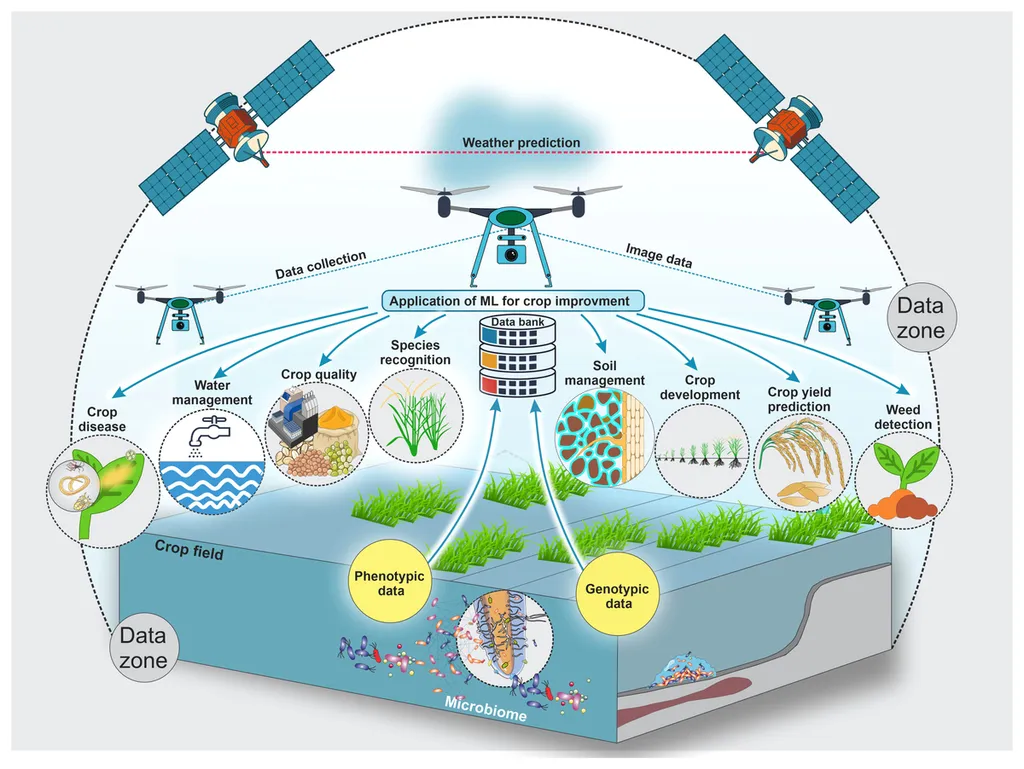In the quest to enhance crop yields and efficiency, researchers have turned to cutting-edge technology to optimize seed treatment processes. A recent study published in *Scientific Reports* introduces a groundbreaking framework that leverages deep learning and multi-objective optimization to fine-tune electromagnetic vibration parameters for corn seed treatment. This innovative approach not only promises to revolutionize seed quality prediction but also holds significant commercial potential for the agriculture sector.
The research, led by Xinwei Zhang from the College of Mechanical Engineering at Anhui Science and Technology University, presents a hybrid CNN-LSTM network architecture designed to process heterogeneous sensor data. This advanced system predicts multiple seed phenotype characteristics simultaneously, offering a comprehensive solution for intelligent seed treatment. “Our goal was to develop a robust model that could adapt to various seed batches while optimizing treatment conditions in real-time,” Zhang explains. The study’s experimental validation using three corn varieties—Zhengdan 958, Xianyu 335, and Jingke 968—demonstrates substantial improvements in germination rates and vigor indices compared to untreated controls.
The integration of genetic algorithms with particle swarm optimization allows the framework to address the complex relationships between electromagnetic treatment conditions and seed quality outcomes. This adaptive parameter optimization strategy successfully balances competing objectives, including treatment effectiveness, energy efficiency, and processing time. “The multi-objective deep learning model achieved 93.7% prediction accuracy with a 91.2% recall rate, outperforming conventional optimization approaches,” Zhang notes. These findings highlight the potential for significant advancements in precision agriculture and sustainable crop production technologies.
The commercial implications of this research are vast. By optimizing seed treatment processes, farmers can expect higher germination rates and more vigorous crops, ultimately leading to increased yields and reduced waste. The adaptive nature of the framework ensures consistent performance across different seed batches, making it a versatile tool for agricultural operations of all sizes. As the agriculture sector continues to embrace technology-driven solutions, this research paves the way for more intelligent and efficient farming practices.
Looking ahead, the integration of deep learning and multi-objective optimization in seed treatment processes could set a new standard for precision agriculture. Future developments may see this technology applied to a broader range of crops and treatment methods, further enhancing the efficiency and sustainability of agricultural practices. As Xinwei Zhang and his team continue to refine their framework, the potential for transformative impacts on the agriculture sector becomes increasingly evident. This research not only advances our understanding of seed treatment but also underscores the critical role of technology in shaping the future of farming.

